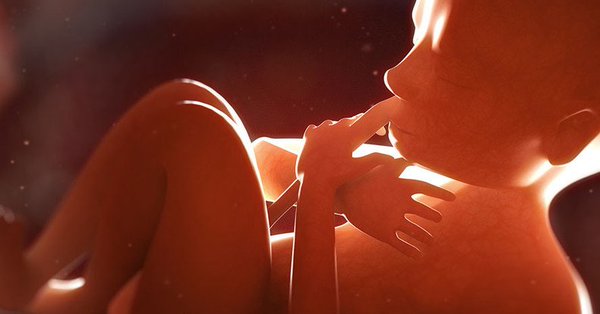A study has shown that unborn babies can tell the difference between someone speaking to them in English or Japanese.
Researchers using non-invasive sensing technology from the University of Kansas Medical Center to measure changes in fetal heart rate found that babies in the womb can distinguish between two rhythmically different languages. A bilingual speaker made two recordings of a passage, one in English, and one in Japanese, which were played to the unborn babies.
They found that the foetal heart rates changed when they heard the unfamiliar, rhythmically distinct language (Japanese) after having heard a passage of English speech. However, their heart rates did not change when they were presented with a second passage of English instead of a passage in Japanese.
Babies can hear
Utako Minai, associate professor of linguistics and the team leader on the study, explained that research has already shown that newborn babies may be sensitive to the rhythmic differences between languages. “This early discrimination led us to wonder when children’s sensitivity to the rhythmic properties of language emerges, including whether it may in fact emerge before birth,” Prof Minai said. “Fetuses can hear things, including speech, in the womb. It’s muffled, like the adults talking in a ‘Peanuts’ cartoon, but the rhythm of the language should be preserved and available for the fetus to hear, even though the speech is muffled.”
The researchers used one of two dedicated fetal biomagnetometers (which can measure heartbeats, breathing and other body movements) in the US to examine 24 women, who were an average of eight months pregnant.
SUPPORT PRO-LIFE NEWS! Please help LifeNews.com with a donation
Language development starts in the womb
The news is an “extremely exciting finding for basic science research on language,” Prof Minai said. “These results suggest that language development may indeed start in utero. Fetuses are tuning their ears to the language they are going to acquire even before they are born, based on the speech signals available to them in utero. Pre-natal sensitivity to the rhythmic properties of language may provide children with one of the very first building blocks in acquiring language.”
The study was published in NeuroReport.
LifeNews Note: Courtesy of SPUC. The Society for the Protection of Unborn Children is a leading pro-life organziation in the United Kingdom.








